You are wrong if you think link building is a shady business!
Link-building can be an effective strategy to improve your site's SEO value when done correctly. In fact, some of the most successful websites in the world have built their link profiles through smart and strategic link-building campaigns.
In this article, we compile a list of the 15 link building techniques to help you improve your rankings. But first, let's define what link building is.
What is Link Building?
Link building is the process of acquiring inbound links (also known as "backlinks") to your website from other websites. A backlink is simply a link from one site to yours, and they're an important part of how search engines like Google rank websites.
Generally speaking, the more high-quality backlinks you have, the higher your site will rank in search engine results pages (SERPs). That's because backlinks are seen as a vote of confidence — the more sites link to yours, the more likely it is that your site contains quality information.
Of course, not all backlinks are created equal. A link from a high-authority website will carry more weight than a link from a lower-authority site. That's why link building is often seen as a game of quantity and quality — you want to acquire as many high-quality backlinks as possible to boost your SEO value.
15 Link-Building Techniques to Boost Your Rankings
There are many different ways to build links, and some methods are much more effective than others and can help boost your rankings in search results.
Here are 15 of the best link-building techniques that you can use to improve your SEO:
1. Publish High-Quality Content
You need to publish high-quality content to rank higher in search engine results pages (SERPs). This means creating informative, well-written, keyword-rich articles, blog posts, and web pages. Not only will this help your site attract more visitors, but it will also encourage other websites to link to your content.
2. Guest Blog on High-Profile Sites
If you want to get your name and your website out there, guest blogging is a great way to do it. By writing articles for high-profile websites in your industry, you'll reach a wider audience and build links to your site. Make sure that the blogs you guest post on are relevant to your niche and have a high Domain Authority.
3. Optimize Your Title Tags and Meta Descriptions
The most important on-page SEO elements are your title tags and meta descriptions. When your website is shown in a search result, these texts are displayed in SERPs. Ensure that the description you use accurately describes the content of your website and that your title tags are original.
4. Promote Your Content on Social Media
Social media is a powerful tool that can help you promote your content and build links. When you share your content on social media sites such as Instagram, Twitter and Facebook, you're more likely to get clicks and traffic from interested users.
According to the data gathered by Earned Links, social sharing can increase website links by 245%. That's why people may share your content, which can help you generate even more links if your content is good.
5. Submit Your Site to Directories
Submitting your website to online directories can help you generate high-quality links. When you submit your site to a directory, you're giving it a vote of confidence and saying, "Hey, I think my site is worth checking out!"
Moreover, it is also one of the quickest and easiest ways to get more traffic. Not only will it help people find your site, but it will also give you a boost in search engine rankings. And the best part is, it's completely free!
If you want to get your business listed, we have compiled a 2022 top 50 Australian Business Directory list.
6. Create an Infographic
Infographics are a fantastic choice if you're trying to build high-quality backlinks because they can be very educational and visually pleasing, and simple to distribute.
Creating a well-designed infographic increases the likelihood that other websites will link to it. And the more exposure your website gets, the better your SERP ranking will be. So, if you're looking to boost your backlink profile, consider creating an infographic. You might be surprised at the results.
7. Use Keywords Strategically
To rank higher in SERPs, you need to use keywords strategically. This means incorporating them into your title tags, meta descriptions, headings, and content. However, it would be best if you avoided keyword stuffing, which is when a website stuffs its content with so many keywords that it becomes difficult to read.
8. Participate in Online Forums
Participating in online forums is a fantastic choice if you're looking for a strategy to drive more traffic to your website. By leaving comments on forums and including a link back to your site in your signature, you can drive traffic back to your site and build links at the same time.
You can also learn much about what people are talking about in your industry by participating in online forums. This can be helpful when it comes to developing new content or products.
9. Podcasting
So you've decided to start a podcast. Congratulations!
This is a great way to earn links and increase traffic to your website. But before you start recording, there are a few things you need to do to make sure your podcast is successful.
- Choose a topic that you're passionate about and that will be of interest to your audience.
- Find a co-host or guest that can help you with the technical aspects of recording and editing your podcast.
- Record your episodes and submit them to popular podcast directories like iTunes, Stitcher Radio, and Spotify.
- Promote your podcast on social media and other online platforms.
- Be sure to include a link to your website in the podcast description so people can easily find it.
10. Broken Link Building
It is a process of finding broken links on websites and replacing them with working links to your content. This technique can be time-consuming, but it can effectively earn high-quality links.
Here are some tips for successful broken link building:
- Use a tool like Check My Links to find broken links on websites.
- Reach out to the website owner and tell them about the broken link.
- Suggest your content as a replacement for the broken link.
- Monitor your progress with a tool like Google Analytics to track the traffic from your new links.
- Keep at it! Broken link building can be tedious, but it's worth it for the high-quality links you'll earn.
11. Write Testimonials for Other Sites
Building links and enhancing your online reputation can be accomplished by writing reviews for other websites. Ensure to provide a link to your website when writing testimonials since people who read your testimonial can find out more about your company or website this way.
12. Create a Resource Page
Creating a resource page can help you get links from websites looking for relevant resources. A resource page is simply a list of helpful resources on a specific topic.
To create an effective resource page:
- Start by brainstorming a list of potential topics relevant to your website's audience.
- Once you have a list of possible topics, start researching websites interested in linking to your resource page.
- Provide them with a direct link to your resource page so they can easily add it to their website.
13. Participate in Link Roundups
Link roundups are blog posts that feature a collection of links to high-quality articles or resources. If you can get your website featured in a link roundup, you'll likely get a lot of exposure and traffic. Just make sure that the link roundup is relevant to your industry or niche.
14. Give a Presentation at an Industry Event
Presenting at an industry event is an excellent strategy to enhance your reputation and get links. A strong presentation will increase the likelihood that someone will link to your website. But how can you guarantee that your presentation deserves to be linked?
Here are some tips:
- Make sure your presentation is well-researched and informative. People will only want to link to a presentation packed with helpful information.
- Use engaging visuals. Audiences should address slides that are full of text. So make sure your slides are visual and easy to understand.
- Practice, practice, practice! The better you know your material, the more confidence you will present it. This will reach your audience and make them more likely to want to link to your presentation.
- Be prepared for questions. Have a few answers ready if someone asks you a question you weren't expecting.
- Follow up with your audience after the presentation. Send them a thank-you note or an email with additional resources they can use. This will show that you are invested in their learning and make them more likely to link to your presentation.
15. Blog Commenting
Leaving comments on other blogs is an excellent way to build relationships with other bloggers and earn links to your website.
When you're leaving comments, add value to the discussion. Ask questions, give your opinion, and contribute to the conversation. This will not only help you build relationships with other bloggers, but it will also show that you're an expert in your field.
As a result, other bloggers are more likely to link to your website when they see your name popping up in their comment section.

